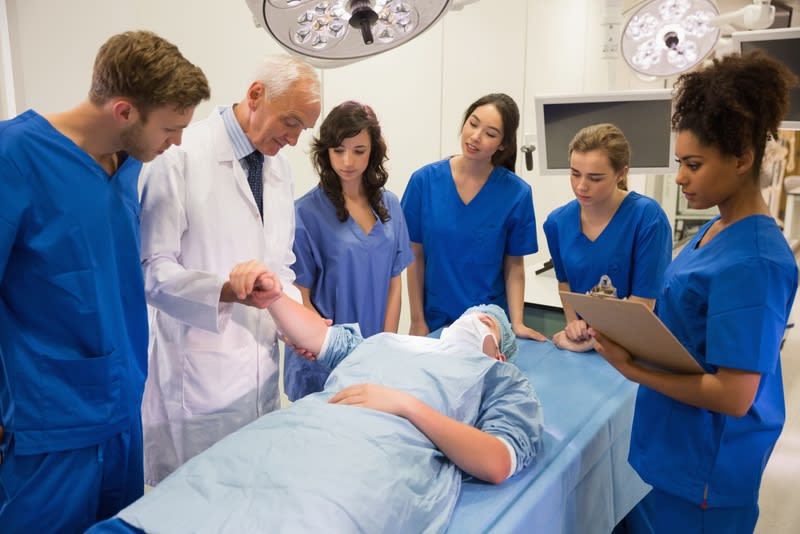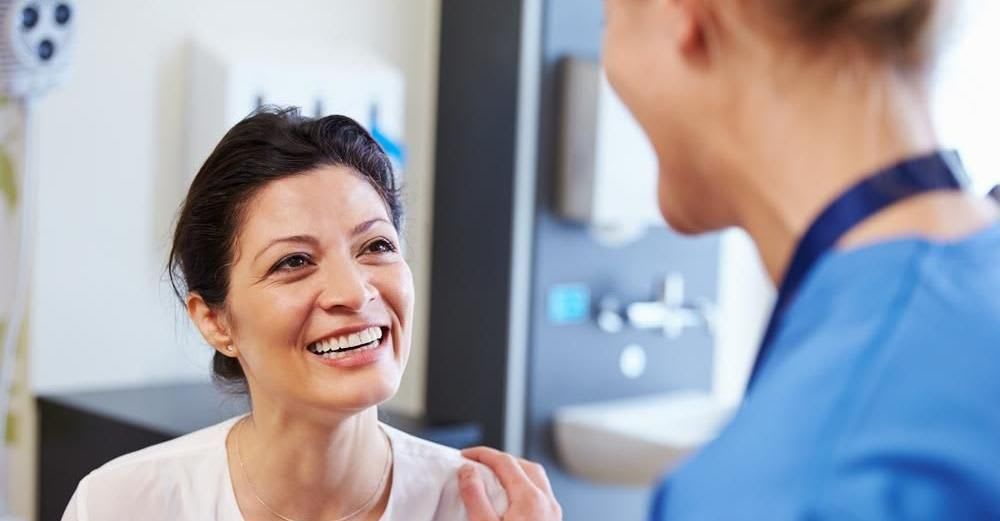Everything You Have Always Wanted to Know About Medical Residency
Aspiring doctors spend a lot of their undergraduate years focused on where they’re going to study medicine. But the questions don’t end just because you get your acceptance letter to medical school. In fact, a significant new question arises: Where will you do your residency? Here’s a closer look at the topic of medical residency training, along with tips for matching with the residency program of your choice.
- Student Tips


Aspiring doctors spend a lot of their undergraduate years focused on where they’re going to study medicine. But the questions don’t end just because you get your acceptance letter to medical school. In fact, a significant new question arises: Where will you do your residency? Here’s a closer look at the topic of medical residency training, along with tips for matching with the residency program of your choice.
What is Medical Residency?
If you’ve ever watched an episode of Grey’s Anatomy or Chicago Med, you’ve probably encountered plenty of stories about the trials and tribulations of medical residents. Simply put, these physicians in training have completed medical school and have medical degrees, but they’re not yet fully licensed to practice.
In the US and some other countries, the completion of a medical residency is essential to becoming board certified by the American Board of Specialities. Failure to do a residency and/or to obtain board certification will limit the practice opportunities for which you are eligible, and will also compromise your ability to get hospital privileges. Because of this, even foreign doctors who have practiced for many years in other countries still have to complete residencies in the US.
Depending on your area of specialization, medical residencies begin at a minimum of three years and can take as long as five years in certain areas, such as surgery. Certain medical specialties also require additional fellowship training beyond residency.
One last thing to keep in mind? When you think of doctors collecting six-figure paychecks, you’re not thinking of residents. Residents work under the supervision of an attending physician, who ultimately bears responsibility for the treatment being administered to patients by residents. Because they are not full-fledged doctors, residents earn a minimal salary of $40,000 and $50,000.
The 411 on “Match”

Unlike with medical school applications, the medical residency application process in the US is determined by the National Residency Matching Program (NRMP or “Match”). Says the American Academy of Family Physicians (AAFP), “The Match process is a uniform system by which residency candidates and residency programs simultaneously “match” to fill first-year and second-year post-graduate training positions accredited by the Accreditation Council for Graduate Medical Education (ACGME).”
Three Tips for Matching with the Right Residency Program
The Match process may seem intimidating and even downright scary. However, the more you know about the process, the easier it is to successfully navigate. Here are three tips aimed at helping you find your way.

1. Start planning early.
The Match process takes almost a year -- beginning in May with the finalization of specialty choices and continuing until March with the arrival of Match Day, when students find out which programs they’ve been matched with. There are various designated steps along the way, such as creating profiles, submitting applications, interviewing, and ranking your choices. However, just because you can’t officially take these steps until a certain calendar date arrives doesn’t mean you can’t start planning and preparing.
Says social media’s leading physician voice KevinMD.com, “Achieving your goals does not begin in your third or fourth year. You should begin building your resume as a top candidate in your first year of medical school. After all, the break between your first and second year is the longest you’ll have. It’s a great opportunity to begin to shadow, do research, and network. There are programs that will assist you, sometimes including a stipend, to gain exposure to a specialty and build your resume. Additionally, participating in a variety of opportunities will help you narrow your selection for a future specialty and define where to focus your efforts.”

2. Know what you want.
When you first start considering residencies, the process can be overwhelming. With so many schools, programs and options from which to choose, how do you know where to begin? The answer is surprisingly simple: start with your own wants and needs.
Advises Waco Family Medicine Residency Program, “First, think about the location you would like to practice. Find out a little about the medical community. What kind of practice do people have? Is it full scope including obstetrics? Then you should look for a residency with strong obstetrics (like our program). Do they include inpatient medicine in their practice or mainly outpatient? Next, what do you want to do? Do you love procedures? Are you interested in teaching medicine? Do you want to be prepared for international work? Find a program that can tailor your training to help you reach your goals. Finally, where are the program’s current graduates? What type of practice do they have? Are they able to perform the procedures they want? It is possible -– but not likely – that you will be able to have a radically different set of hospital privileges than physicians who are already in practice in the location you choose.”

3. Create a network of contacts.
KevinMD.com highlights the importance of mentors and sponsors in the residency match process: “Mentors are teachers. They inform you of potential opportunities, guide you in the right direction, and are your go-to resource. Choosing the right mentor involves asking questions and making connections. Sponsors, on the other hand, are your advocators. They are those who will pick up the phone and call your coveted residency program to scream your praises. Both are equally important to develop your application and will eventually help you achieve the residency you desire.”
Another vital purpose for building contacts and creating a network? Securing letters of reference. According to The Student Doctor Network, “The percentage of program directors who considered letters of reference important was 71 percent and the rating across all specialties for how this factor influenced ranking was 4.2.” In short, the right recommendations can be used to complement strong test scores, grades, personal statement, and extracurricular activities, or to boost an application in which some or all of these other aspects are lacking.
Choosing a residency program is one of the most important decisions you’ll make in your career. It’s important to remember, however, that you’re not completely at the mercy of the system. Rather, understanding the process and taking proactive action can help you position yourself for Match day success.

Joanna Hughes
Author
Joanna worked in higher education administration for many years at a leading research institution before becoming a full-time freelance writer. She lives in the beautiful White Mountains region of New Hampshire with her family.
Read related articles

What You Should Know If You Want To Practice Medicine Abroad

Five Countries to Choose for Nursing Degrees
